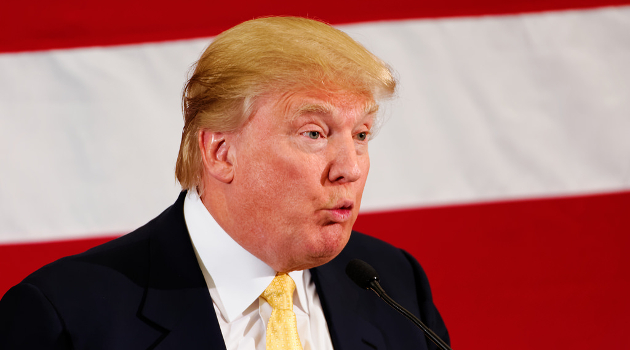Most economic downturns are caused by misguided government policy, which leads to predictable battles over how to address the fallout as well as battles over how to avoid the same mistakes in the future.
Today’s crisis is different. It’s more akin to a natural disaster. But it’s not a one-off event like a big hurricane or earthquake. It’s an ongoing pandemic, which is having a terrible impact on many sectors of the economy. And if it lasts a long time, the consequences will be catastrophic depression rather than ordinary recession (which is why it is reasonable to contemplate the economic and health tradeoffs of re-opening the economy).
To deal with the immediate consequences of this crisis, Washington has responded by approving a mutli-trillion dollar relief package. And I won’t be surprised  if politicians come back with another huge package.
if politicians come back with another huge package.
Since responding to a pandemic is a legitimate function of government, I don’t have a principled objection to emergency legislation (for wonky readers, there’s an interesting debate in libertarian circles about whether government assistance – even bailouts – can be justified because government has ordered a shutdown of economic activity, which can be viewed as a “regulatory taking“).
That being said, I worry that self-interested politicians will use the crisis as an excuse to shovel goodies to their friends and cronies.
And I also want to minimize the danger that politicians will use the crisis as a reason to permanently expand the size and scope of government.
I’ve already written about how the crowd in Washington is exploiting the crisis with regards to three different issues.
Today, let’s consider a potential downside of providing assistance to companies. We’ll focus on airlines, but the lessons apply to any businesses that get government assistance.
A Bloomberg report explains why this issue, in general, is controversial.
…the administration may consider asking for an equity stake in corporations that want coronavirus aid from taxpayers. …Against that, there’s the potential for political risk.
During the financial crisis, some Republicans decried a tilt toward European-style socialism. The current crisis coincides with the — albeit fading — candidacy of Bernie Sanders, and his democratic socialist platform. …“This is a very big slippery slope because the ownership of private capital by government is not traditionally consistent with capitalism,” said Kevin Caron, portfolio manager for Washington Crossing.
The Wall Street Journal‘s editorial on this issue focuses on the airline industry and makes some very important points.
America’s beleaguered passenger airlines are allocated roughly $50 billion in the coronavirus relief bill… The idea is simply to freeze the staff list for six months, at which point the pandemic might have receded and air travel recovered. In exchange, Congress has authorized the Treasury Secretary,
at his sole discretion, to “receive warrants, options, preferred stock, debt securities, notes, or other financial instruments” that constitute “appropriate compensation to the Federal Government.” …The desire to get something for the taxpayer’s buck is understandable, but there’s a real risk here of a long-term nationalization. …Washington should have no role in directing the business of a private company, and Treasury Secretary Steven Mnuchin perhaps would agree. What if his successor turns out to be Treasury Secretary Elizabeth Warren? …Helping the airlines weather a 100-year pandemic might be, arguably, within the government’s job description. Owning them isn’t.
The bad news is that are no good options.
It’s not a good idea to simply give taxpayer money to airlines. And it’s also not a good outcome for airlines to go bankrupt, perhaps leading to a total shutdown rather than a reorganization.
Some outcomes, however, are worse than others. And having government as a major shareholder is the option with the greatest long-run risk.  Simply stated, it’s a recipe for cronyism and industrial policy.
Simply stated, it’s a recipe for cronyism and industrial policy.
Based on what’s already happened on issues such as energy and trade, I don’t trust President Trump and his team to have a hands-off attitude. What will happen, as we approach the November election, if the White House thinks it can win a key state by forcing a company (either an airline or any other affected firm) to increase jobs and/or pay?
Or, if you happen to trust Trump, what happens if Joe Biden wins in November and – as the Wall Street Journal warned – a dogmatic interventionist like Elizabeth Warren becomes Treasury Secretary.
She already has a very bad track record on issues of corporate governance. Do you want her to have the power that comes with being a major shareholder?
For all intents and purposes, this is why I unveiled the Fifth Theorem of Government last September.
I’ll close with some troubling observations about where we may be heading.
- The technical definition of fascism (at least with regards to its economic policy) is nominal private ownership of business but government control.
- The technical definition of socialism is outright government ownership and control of business (along with other policies such as central planning and price controls).
Which raises the depressing issue of how much government ownership is required to get to #1 and how much additional government ownership is required to get to #2.
Could it be that Bernie Sanders may be the real winner, regardless of who is in the White House next year?
———
Image credit: Michael Vadon | CC BY-SA 2.0.


